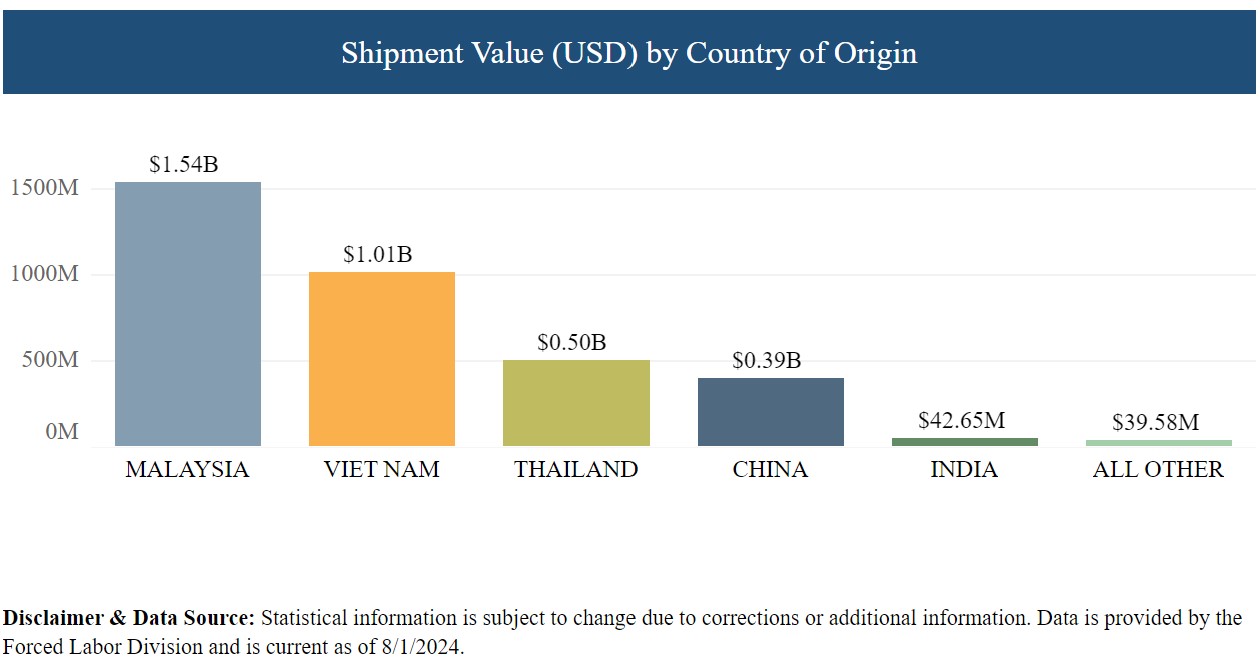Industry News
Customs Reminds Importers that Most UFLPA Seizures Aren't Shipped from China
TweetSep. 5, 2024
By:
Chaney A. Finn
The responsibility to ensure that goods made with forced labor do not end up in an importer’s supply chain has become a significant concern for most importers. However, with complex global supply chains many importers have had significant difficulty effectively policing (or sometimes even identifying) their suppliers.

One ongoing issue is determining when goods have run afoul of the Uyghur Forced Labor Prevention Act (UFLPA). The law prohibits goods from being imported from the Xinjiang Uyghur Autonomous Region of China due to the legal presumption that such goods are made with forced labor. Too many importers limit their UFLPA analysis to goods they import from China. This is not only legally incorrect but factually incorrect.
As the accompanying graphic makes clear, China is the fourth most common point of shipment for imports detained under UFLPA suspicion. In fact, solar panels and other electronics have had significant UFLPA issues with shipments not from China. For example, nearly one third of electronics shipments were detained from India in FY2024 due to UFLPA suspicion, a substantial increase from no detentions in previous years.
According to U.S. Customs & Border Protection, which records the importation compliance of merchandise subject to the UFLPA, $1.63 billion worth of merchandise has been detained so far in FY2024 (October 2023 through July 2024). The top source of shipments by far is Malaysia, having $1.54 billion worth of merchandise detained, followed by Vietnam ($1.01B), Thailand ($0.5B), China finally ($0.39B), and then India ($42.65M) before the rest of the countries are grouped together in a catch all category of $39.58M. Notably, about half of the detained shipments are released which is done when CBP determines enough evidence has been provided to prove the merchandise is free of forced labor. The other half is denied entry and must be immediately exported or destroyed.
The detained shipments for every of the aforementioned countries are overwhelmingly of the electronics category, followed by apparel and textiles, and then industrial and manufacturing materials. China is the exception where apparel and textiles is most of its detained shipments and electronics are the 9th most detained shipments. Electronics generally are of concern due to the nature of forced labor being used to mine the minerals used inside of the electronics.
Should you have any questions about the UFLPA or any other trade-related questions, do not hesitate to contact any attorney at Barnes, Richardson & Colburn, LLP.
